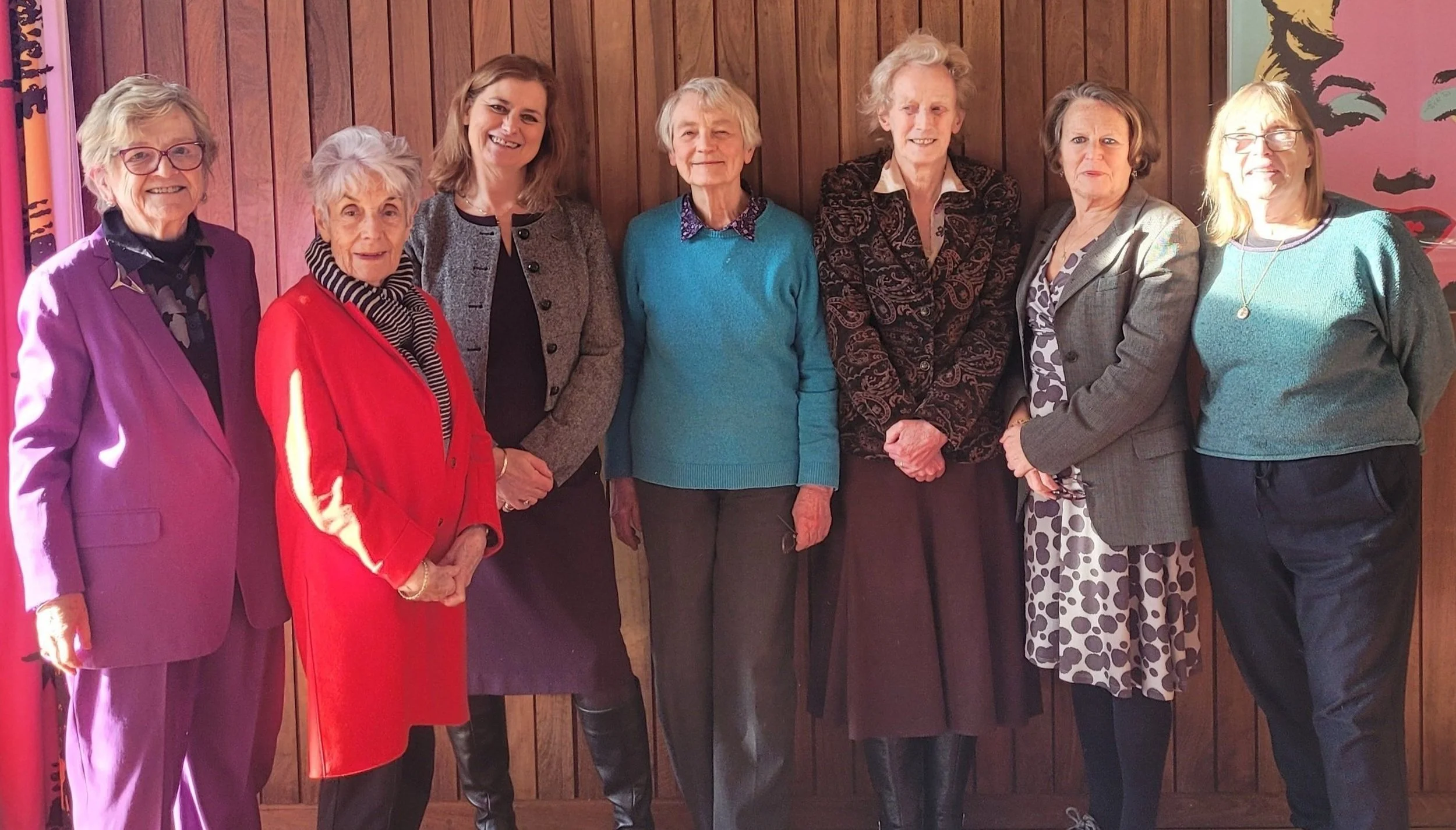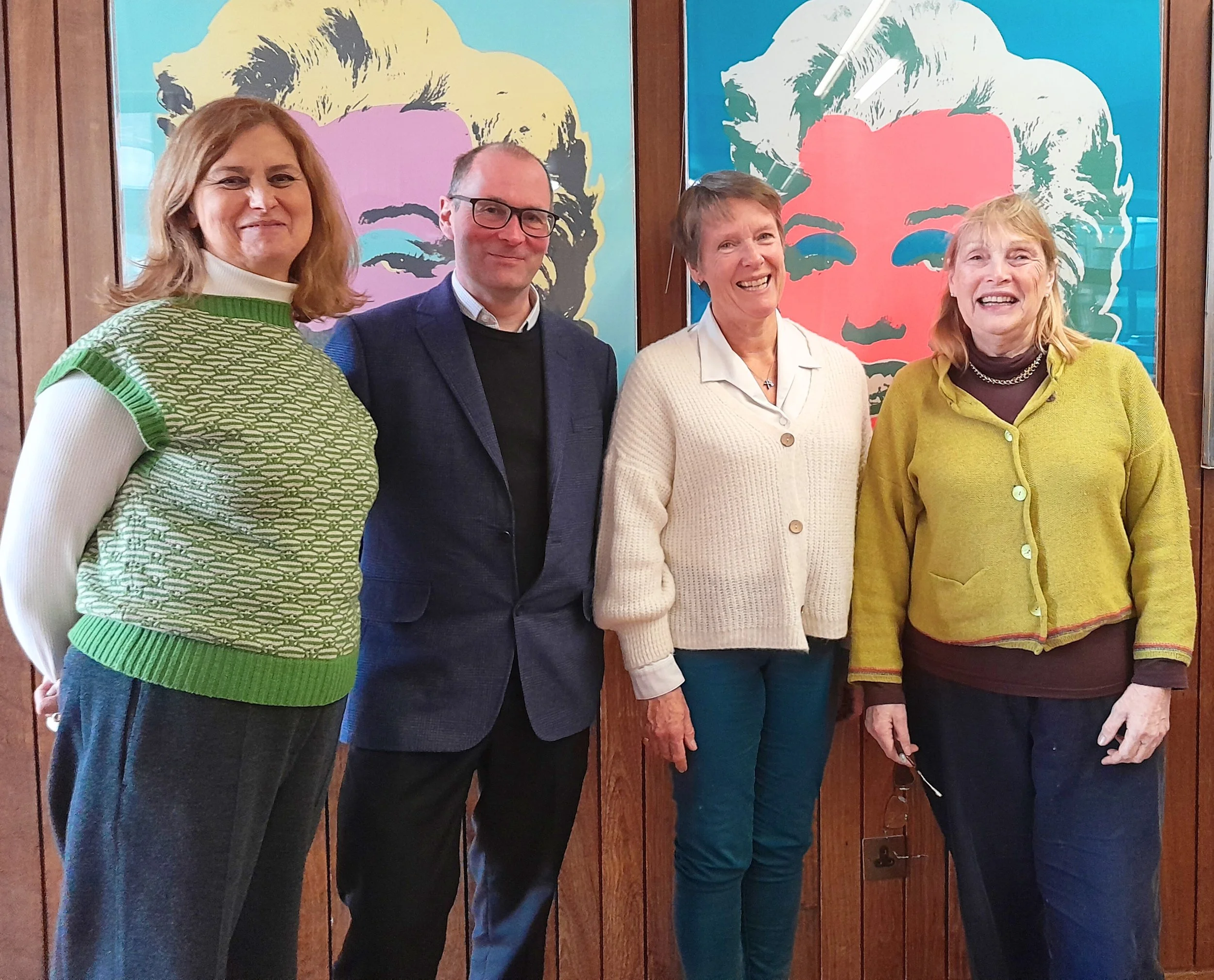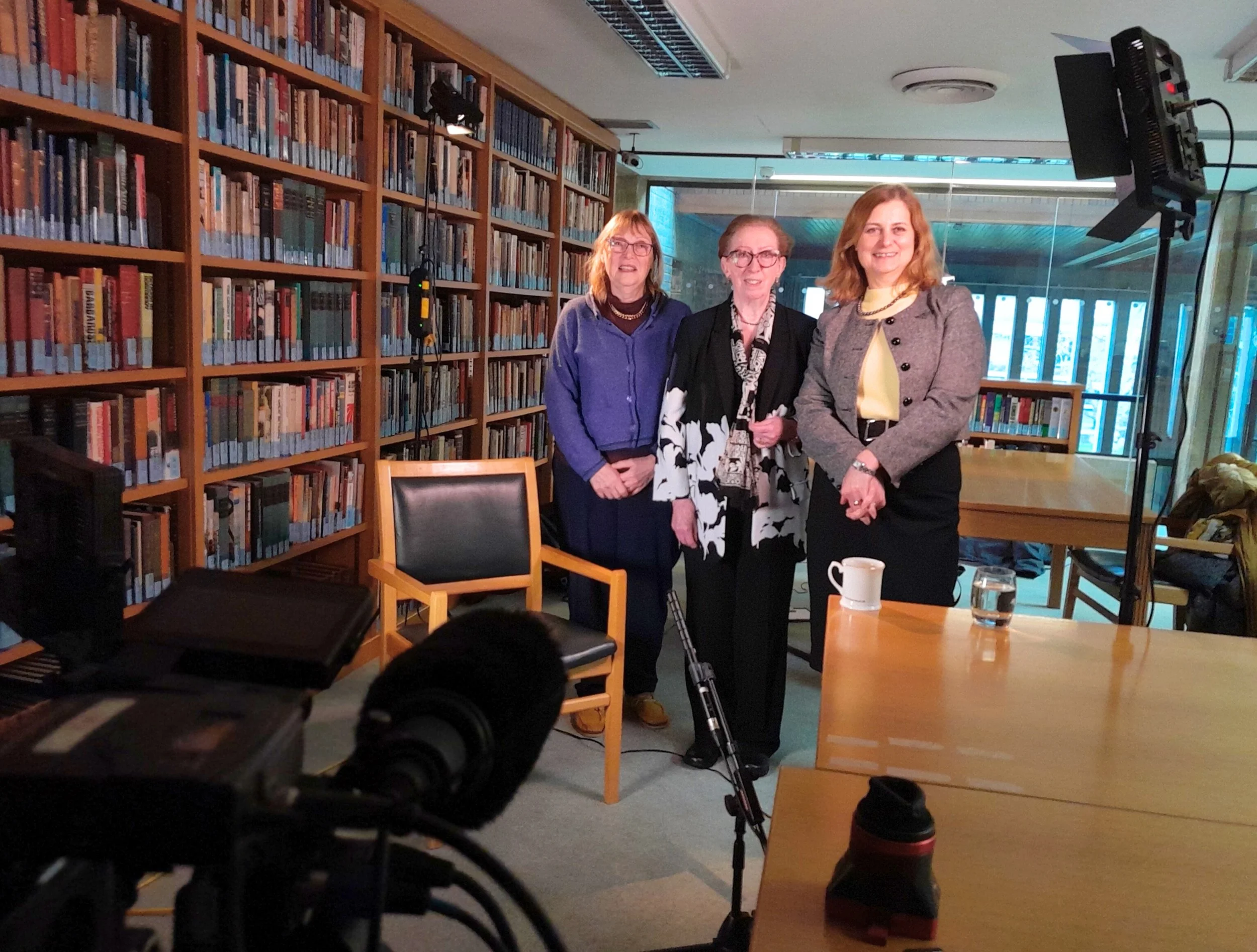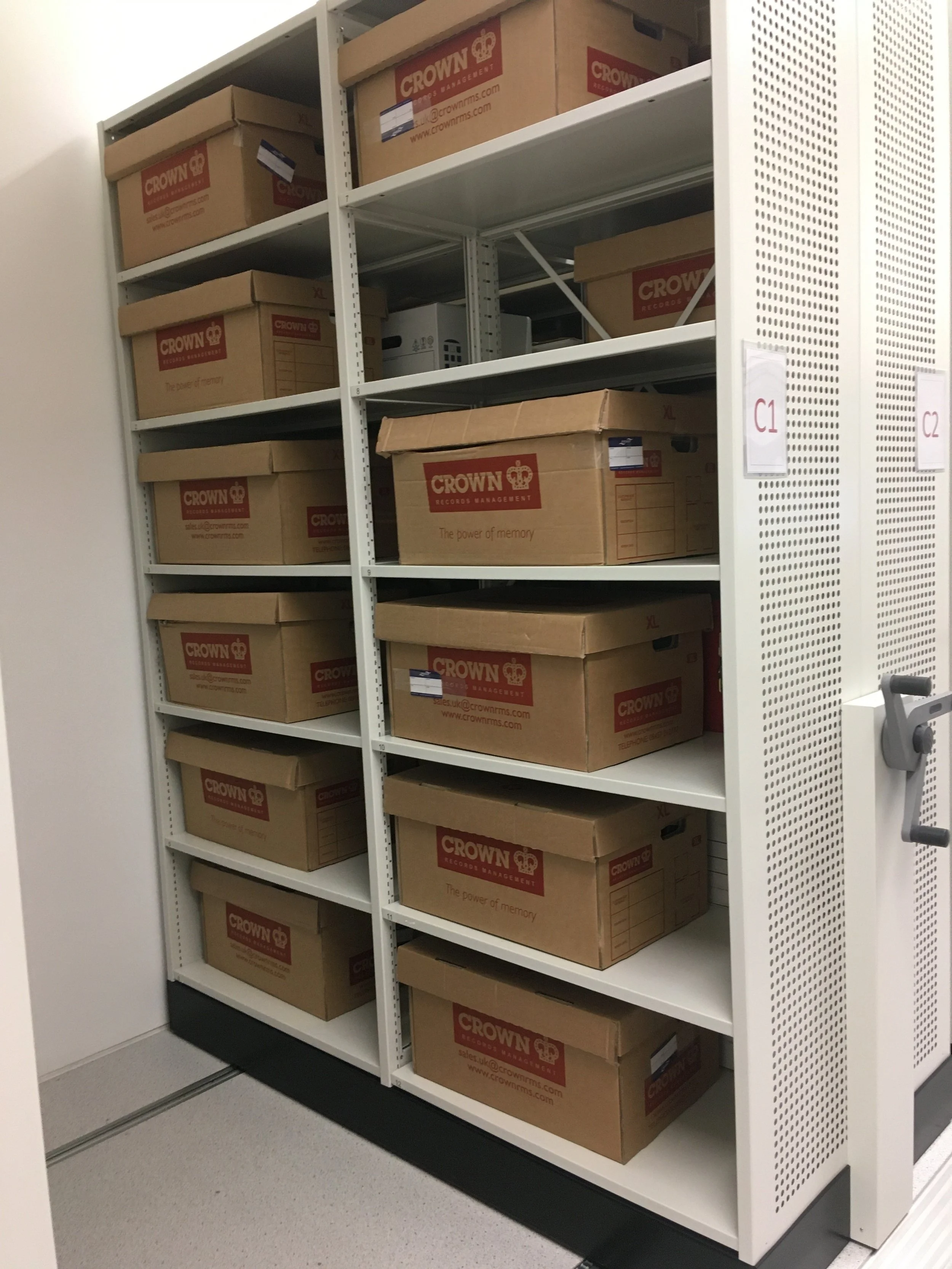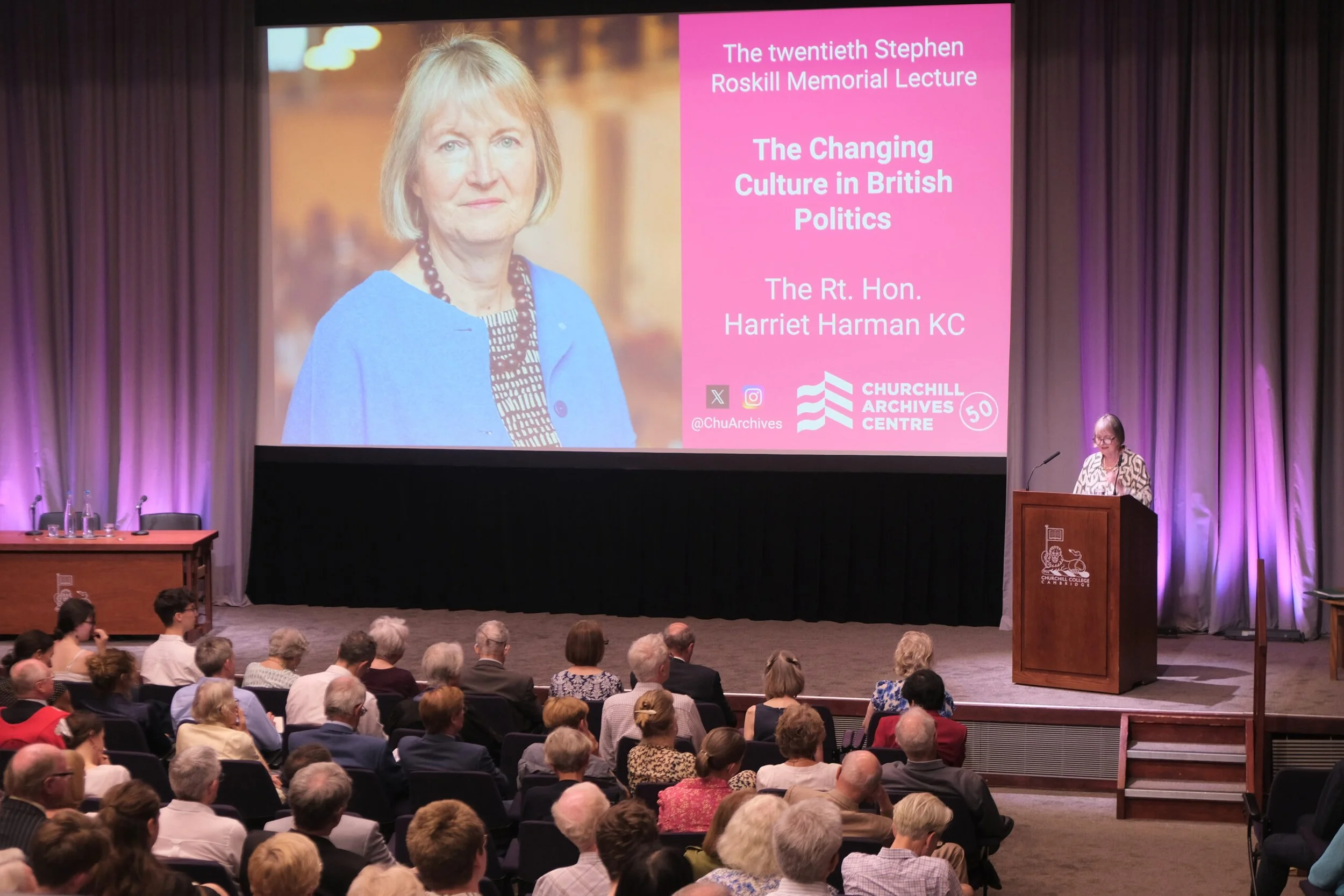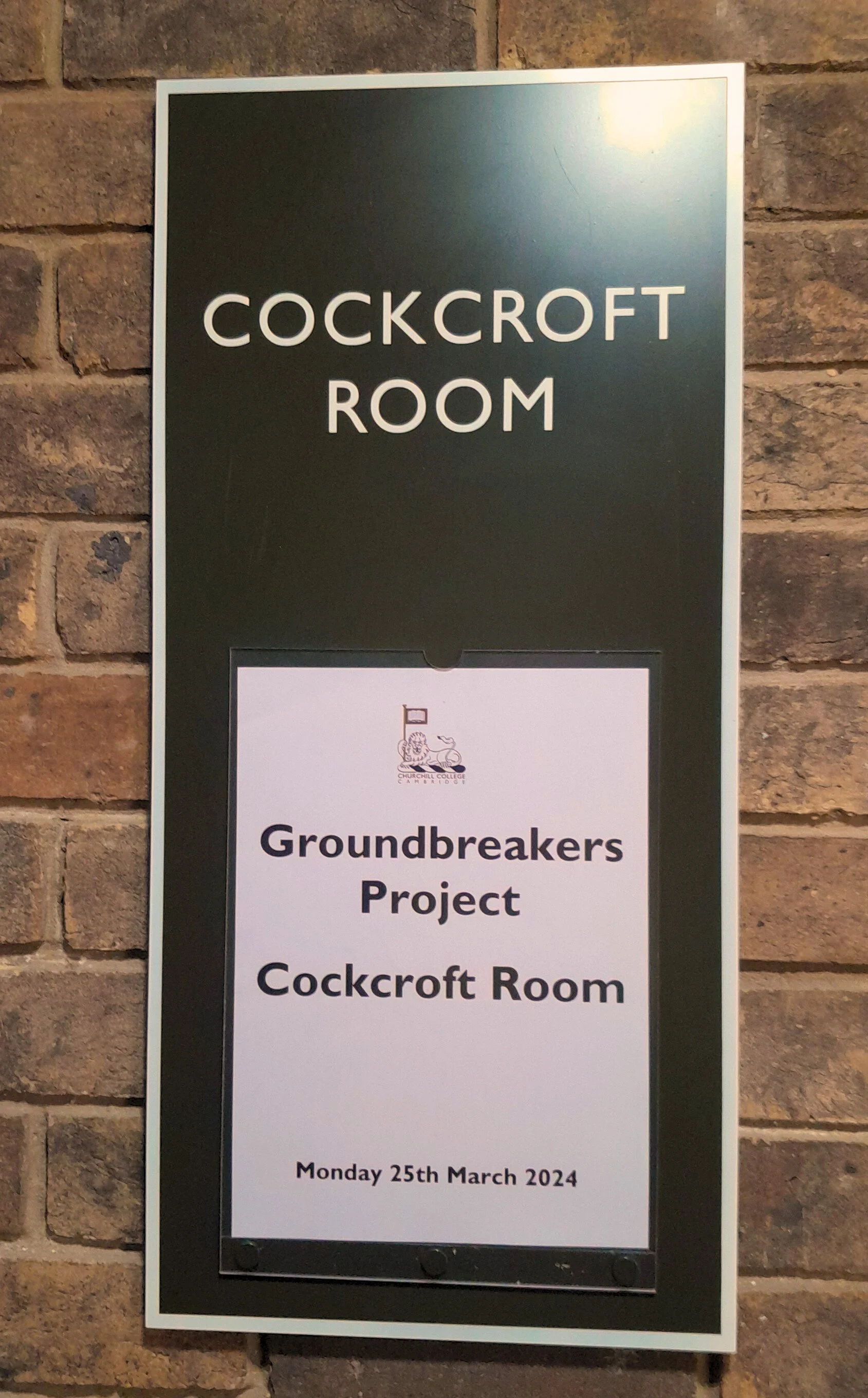Groundbreakers
In Their Own Words
Introducing Groundbreakers
The 2024 general election marked a historic milestone: a record 263 women were elected as MPs. Together, women make up 40% of all MPs sitting in the House of Commons.
In the months leading up to this election, the founder of Women’s Parliamentary Radio, Boni Sones OBE, along with Associates Jackie Ashley and Deborah McGurran, launched a new initiative: Groundbreakers.
Their aim was to capture the voices and stories of some of the most influential women in British parliamentary history. Through in-depth interviews, they documented the personal and political journeys of Parliament’s leading women.
This online exhibition shares highlights from those interviews, recorded in 2024 and now preserved at the Churchill Archives Centre. These interviews offer a unique window into the experiences of women who helped pave the way — and continue to shape — the future of British politics.
Baroness Hilary Armstrong, Baroness Gillian Shephard, Deborah McGurran, Anne Campbell, Dame Athene Donald, Baroness Anne Jenkin, and Boni Sones OBE at Churchill College in 2024.
Deborah McGurran, Allen Packwood, Baroness Spelman and Boni Sones OBE at Churchill College, Cambridge.
Boni Sones OBE, Baroness Margaret Beckett, and Deborah McGurran after filming Beckett’s interview in the reading room at Churchill Archives Centre in Cambridge.
Jackie Ashley, who worked with Boni Sones OBE and Deborah McGurran on the Groundbreakers project.
Helene Hayman
Known as the ‘Julie Andrews’ of politics, Baroness Helene Hayman, was the Labour MP for Welwyn and Hatfield from 1974 to 1979. From 1974 until 1977, she was the ‘Baby of the House’, joining Parliament aged 25. Hayman became a life Peer in 1996 and a decade later, became the first Lord Speaker of the House.
In this short interview clip, Hayman remembers the response she received when as the ‘Baby of the House’, she brought her own baby into the House of Commons.
Margaret Beckett
Baroness Margaret Beckett first entered Parliament on 12th March 1976 as part of Harold Wilson’s Labour government, representing Lincoln and later Derby South (from 1983-2024). Beckett became the first female Foreign Secretary in 2006.
In the first part of her interview, Beckett shared her experiences of standing for Parliament and the relationships she formed with fellow female Parliamentarians:
“When I first stood for Parliament, it was very difficult to get a seat for anybody. When I got elected for the first time the pattern was that women were all in marginals that was the norm. You only had to look around and you really knew whether we were all there or not, so there was a strong sense of camaraderie amongst us. Most of those who came in with me in 74, like me, went out again in 79. Those who didn't go out in 79 went out shortly afterwards. There wasn't any kind of assumption that a woman MP would come back again. It was still harder.”
Beckett went on to reflect on her early days in Parliament and how she responded to remarks from her male colleagues after she was appointed Foreign Secretary.
Harriet Harman
Baroness Harriet Harman was elected as Labour MP for Peckham in 1982. She served on Labour’s front bench in numerous roles including Shadow Secretary of State for Health and Shadow Secretary of State for Employment. After Labour was elected to Government in 1997, she served as Minister in a number of positions including, Secretary of State for Social Security, and Minister for Women.
Harman has been frequently championed women’s rights during her time in Parliament. As a Minister, she was responsible for numerous changes for women including the National Childcare Strategy, new laws on domestic violence and the Equality Act - the latter of which she reflects on as one of her most notable achievements.
In 2024, Harman deposited her papers at Churchill Archives Centre. Harman’s papers, pictured in boxes in our Sorting Room to the left, include a long-running series of personal notebooks and constituency newsletters. They provide an invaluable record of Harman’s four decades in Parliament.
Harman also delivered the 20th Roskill Lecture on the ‘Changing Culture in British Politics’, which you can watch here.
You can listen to earlier interviews with Harman on Women’s Parliamentary Radio on our Access Portal here.
Emma Nicholson
“I think they've been misled in thinking that social media is an electoral tool.”
Baroness Emma Nicholson entered Parliament as a Conservative MP in 1987, representing Torridge and West Devon 1987. In 1995, she became a member of the Liberal Democrats, before rejoining the Conservative party in 2016. Like many of the women featured in this exhibition, social media fundamentally altered the political landscape during Nicholson’s time in Parliament. Nicholson reflects on how useful she found social media when engaging with the electorate.
Explore archive material relating to Nicholson’s work in our collections at the Archives Centre.
Gillian Shephard
“By the way, there is no women minister’s lavatory.”
Baroness Gillian Shephard represented South West Norfolk between 1987 and 2005. Over the course of her career, she served as Cabinet Minister for the Environment, Education and Employment, Agriculture, Fisheries and Food. Like many of her female peers, Gillian Shephard was given far from a warm welcome when appointed Minister of State. She remembers how:
“It was when I was at the Treasury in 1990, I felt for the first time, anti-women prejudice. I had been a parliamentary secretary of state at social security in 1989. When Mrs. Thatcher gave me that job she said, “now dear”, she always said that when she couldn't remember your name, “it is the most junior job in government, but I want you to know that it was a job I started with and will always remember.
But when I got the job in the Treasury, which was when John Major became Prime Minister, and at the same time I was made deputy to Chris Patten, the deputy chairman of the Conservative Party, people began to feel they were being competed against.”
In her interview, Shephard shares the response she received from her Treasury team after being appointed Minister of State.
Anne Jenkin
“You know, I'm hoping that I shall be pushed in my wheelchair into the gallery to watch generations to come making their maiden speeches.”
Baroness Anne Jenkin stood for Parliament in 1987 for Glasgow Provan. With former Prime Minister Theresa May, she set up Women2Win, a mentoring and pressure group in the Conservative party in 2005. In the first part of her Groundbreakers interview, Jenkin discussed the small number of female MPs in the Conservative party:
“Having been around Westminster for a long time, I could see that there weren't enough women MPs and in the Conservatives in particular. All the political parties were bad at it until Tony Blair came in and introduced all women shortlists in 1997, and then they leapt ahead. In 1997, when Theresa May and Eleanor Lang, for example, were both elected, we had, I think, 17 Conservative women MPs.
That was a year of a massive landslide for Labour, but they at the same time had 101 women. So, if you can visualise the 17 on our side and the 101 on the Labour side, it illustrates the problem quite clearly. I think I got steamed up about it a little bit later on, and by the 2005 general election, we'd made no progress, basically, between that period we were at 9% of the parliamentary party, women made up just 9%. Or as I prefer to say it, men made up 91%.“
In the clip below, Jenkin talks about the changes she witnessed in the House of Commons during her career, as well as her personal highlights.
You can listen to earlier interviews with Jenkin on Women’s Parliamentary Radio on our Access Portal here.
Virginia Bottomley
Baroness Virginia Bottomley’s parliamentary career started in 1984, when she became the Conservative MP for South West Surrey. Bottomley held onto her seat for over twenty years, before becoming a member of the House of Lords in 2005. She served as Minister (1989-1992) and later Secretary of State for the Department for Health (1992-1995) under Margaret Thatcher and John Major’s governments respectively.
In the clip below, Bottomley shares her reflections on becoming the ninth woman to sit in the British Cabinet.
Explore archive material relating to Bottomley’s work in our collections at the Archives Centre.
Hilary Armstrong
“We've not had any women since Ellen Wilkinson...”
Baroness Hilary Armstrong served as a Labour MP for North West Durham from 1987 to 2010. Upon her election, Armstrong remembers:
“I was elected in 1987 and I come from the Northeast of England. […] And there were three of us elected from the North East, about 26 MPs, three of whom were women. And we've not had any women since Ellen Wilkinson who was first elected for Labour in 1924 to 1929 and again for Jarrow in 1935. Ellen died in 1945 and served in the Attlee government. So, there we were in 1987, a good 20 years later, and we were the only three. But before we were elected, we knew each other well and talked to each other, and we all had issues about being the only woman.”
Tony Blair would go on to appoint Armstrong Minister for Social Exclusion. Between 2001 and 2006, she was also Government Chief Whip.
In her interview, Armstrong discusses why she felt her work on homelessness and the SureStart programme was one of the most rewarding parts of her parliamentary career.
Anne Campbell
In 1992, Anne Campbell became the Labour MP for Cambridge. Campbell had strong ties to the city: studying Maths at Newnham College; serving as a Councillor; and working in various education and science based roles in Cambridge. Campbell was the first politician to set up her own website, which she launched in 1995.
In her interview, Campbell reflects on her early days in Parliament and the importance of the friendships she forged with fellow Labour women MPs.
Estelle Morris
“I think I'm most proud … of having won a marginal seat three times.”
Baroness Estelle Morris represented Birmingham Yardley for Labour from 1992 to 2005. She became Secretary of State for Education from 2001 to 2002, having been the first former comprehensive school teacher to hold the position. She was created a Life Peer in May 2005. Morris reflects on what she felt most proud of during her parliamentary career.
Margaret Hodge
Dame Margaret Hodge became Labour MP for Barking in 1994 and held onto her seat for 30 years. During this time, Hodge chaired the Public Accounts Committee from 2010 to 2015. More recently, she spoke out against antisemitism in the Labour Party under Jeremy Corbyn.
In her interview, Hodge talks about the significance of the 1997 election for women:
“The 1997 intake of Labour women did change Parliament. I think all the positive action, the all women shortlist was absolutely central in bringing more women into Parliament. […] It was a really effective tool and it helped us grow. […]
But I absolutely hated that photograph of Tony Blair with the Blair’s Babes. I thought that was a deeply, offensive, image of us, who we were, you know, standing behind Tony. I love Tony Blair, but standing behind him in that way, I thought was not welcome.”
In this clip, Hodge shares what she thought were her greatest achievement in politics.
Caroline Spelman
“I looked around the world for what could be the next big idea for environment.”
Dame Caroline Spelman was Conservative MP for Meriden between 1997 to 2019. She became Secretary of State for Environment, Food and Rural Affairs in the Cameron-Clegg Coalition government, from 2010 to 2012. It was this period of her career which Spelman felt proudest of when interviewed in 2024.
You can listen to earlier interviews with Spelman on Women’s Parliamentary Radio on our Access Portal here.
Susan Kramer
Baroness Susan Kramer was the Liberal Democrat MP for Richmond Park between 2005 to 2010. From 2013 to 2015, Kramer served as Minister of State for Transport in the Cameron-Clegg coalition. She went on to become the party’s Treasury Spokesperson from 2015 to 2019.
In the video below, Kramer shares her most notable achievements - as well as that of her colleague, Lynne Featherstone.
You can listen to earlier interviews with Kramer on Women’s Parliamentary Radio on our Access Portal here.

A photograph of some of the Conservative party's female MPs taken on 21st May 2008 to mark 90 years since women first got the vote, SOBA 6/1, © Boni Sones.

A photograph of some of Labour's female MPs standing on the steps at New Palace Yard, under Big Ben in the heart of the Westminster village on 21st May 2008. All three of these photographs were taken by Kieran Doherty who took the famous 'Blair's Babes' photograph in 1997, SOBA 6/1, © Boni Sones.

A photograph of some of the Liberal Democrat's women MPs assembled on 21st May 2008 to mark 90 years since women first got the vote, SOBA 6/1, © Boni Sones.
Find out more






Watch the full-length Groundbreakers documentary on YouTube.
Listen to longer audio versions of these interviews hosted on Boni Sones’ website. The video interviews will be catalogued and added to the Churchill Archives Centre Access Portal in the near future. You can also read highlights from these interviews in Boni Sones’ article. Boni Sones is a Fellow Commoner at Lucy Cavendish College and Research Associate at The Centre for Business Research).
Listen to earlier interviews given many of the women featured in this exhibition, alongside other leading female MPs, for Women’s Parliamentary Radio, which are available on our Access Portal.
Browse our online exhibition ‘Uphill All the Way Exhibition: A Century of Women in Parliament’, revealing some of the stories of pioneering women MPs in our archives.
Visit the Archives Centre and read memoirs by female MPs including A Woman Like Me by Diane Abbott, A Purposeful Life: What I’ve Learned About Breaking Barriers and Inspiring Change by Dawn Butler, A Woman’s Work by Harriet Harman, House Music: The Oona King Diaries by Oona King, Going Nowhere: A Memoir by Joan Ruddock, The Downing Street Years and The Path to Power by Margaret Thatcher.
Acknowledgements
Thank you to all of the Parliamentarians who took part in the Groundbreakers project: Baroness Hilary Armstrong, Baroness Margaret Beckett, Baroness Virginia Bottomley, Anne Campbell, Baroness Harriet Harman, Baroness Helene Hayman, Baroness Margaret Hodge, Baroness Anne Jenkin, Baroness Susan Kramer, Baroness Estelle Morris, Baroness Emma Nicholson, Baroness Gillian Shephard, and Dame Caroline Spelman.
Thank you to James Lo and the Churchill College AV Team, Robin Hood Media, Nick Saffell and Mark Dodd.
Image credits for top image: Baroness Morris, Baroness Hayman, Baroness Beckett, Baroness Nicholson, Baroness Hodge, Baroness Armstrong, © House of Lords / photography by Roger Harris, Baroness Bottomley, © House of Lords, Baroness Kramer, © House of Lords / photography by Roger Harris, Dame Spelman © House of Commons / photography by Chris McAndrew, Baroness Harman, © House of Lords / photography by Roger Harris, Baroness Shephard, © House of Lords, Baroness Jenkin, © House of Lords / photography by Roger Harris.



